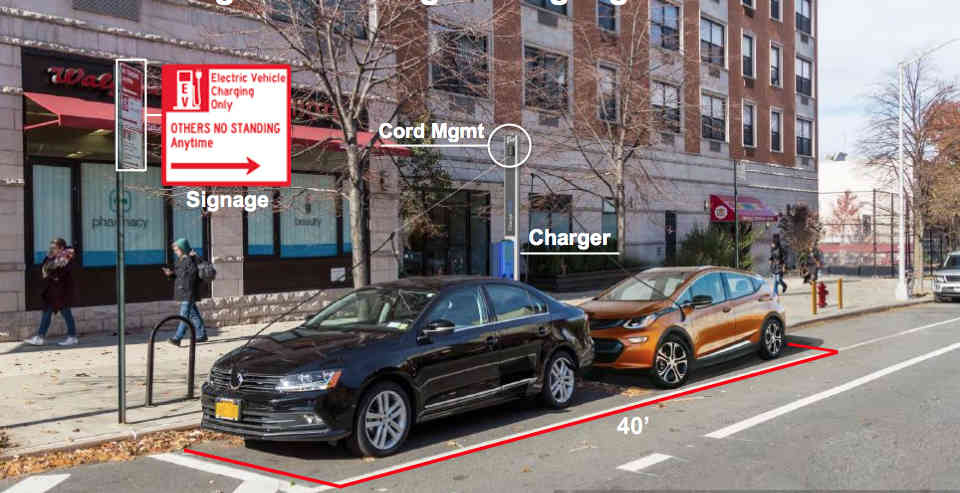Park Slope is juicing up!
City transportation gurus unveiled their plan to bring electric car charging stations to Park Slope by year’s end at a June 20 meeting of Community Board 6, arguing that dedicated curbside chargers are necessary to facilitate carbon-free vehicles.
“The purpose is to encourage [electric vehicle] ownership, because people feel like they have range anxiety,” said Department of Transportation rep Susan McSherry. “They may want an electric vehicle, and they’re very concerned about climate change, and they’re very concerned about air quality, but they don’t know where to charge their car.”
The plan is part of an effort to build 100 curbside charging ports citywide — including six for Park Slope — as a pilot program for a possible future expansion. The stations, which are capable of charging two cars simultaneously, would occupy two parking spaces each and provide juice at competitive rates, according to McSherry.
“The cost will be by time. You’ll pull in, and it will charge by the hour,” she said. “It will be a charge cost comparable to gasoline.”
Department reps estimated that cars would occupy the spaces for between four and eight hours to fully charge, depending on the type of vehicle and the size of the battery. Internal combustion vehicles — or electric cars that overstay their welcome — would be subject to a $115 ticket for parking in a “no standing” zone.
The city is currently studying five locations for the new charging stations, including:
• Fifth Avenue and 13th Street
• Fourth Avenue and First Street
• Seventh Avenue and Seventh Street
• Prospect Park West and Fifth Street
• Prospect Park West and 10th Street
Those locations, which were selected based on criteria including median income, travel data, and ownership of electric vehicles, have not been finalized, and the city is still working to identify a sixth and final location, according to McSherry.
The pilot project is being developed in partnership with Con Edison, which is picking up the tab for construction of the stations, according to McSherry, who said the charging ports would be operational by next fall.
The electricity used by the stations will be generated by fossil fuels, but department officials argue that electric vehicles emit less carbon dioxide than their gas-burning counterparts, which will help reach the city’s goal of cutting greenhouse gas emissions to 20 percent of current levels by 2050.

























